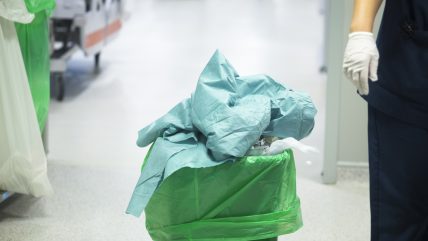
The UK’s National Health Service (NHS) University College London Hospitals (UCLH) has announced a new scheme to recycle the packaging of its single-use surgical items.
This initiative, to be carried out in collaboration with Johnson & Johnson MedTech and partners MYGroup and Resourcify, is set to cut down on approximately 215kg of waste annually that would otherwise be incinerated.
These packaging materials (plastic and metal) have been historically problematic to recycle through conventional methods.
Now, the materials will be shredded and processed through an electrostatic machine at MYGroup’s advanced facilities to separate the metal from the plastic.
This material is utilised in the production of various items, including furniture and storage boxes, as well as in construction, shop fitting, and joinery.
Meanwhile, the metal components will be melted down and recycled into new aluminium products.

US Tariffs are shifting - will you react or anticipate?
Don’t let policy changes catch you off guard. Stay proactive with real-time data and expert analysis.
By GlobalDataThe move is set to significantly reduce the hospital’s carbon dioxide (CO₂) emissions.
UCLH sustainability lead Joe Burton said: “This is a great way for UCLH to reclaim valuable materials such as metals as well as giving plastics a new lease of life, whilst generating CO₂ savings compared to incineration or taking items to landfill.
“Whilst only a small change, this project is a fantastic example of one of our suppliers taking responsibility for its waste. We hope this sets a precedent for others to follow suit as well as opening conversations amongst our staff.”



